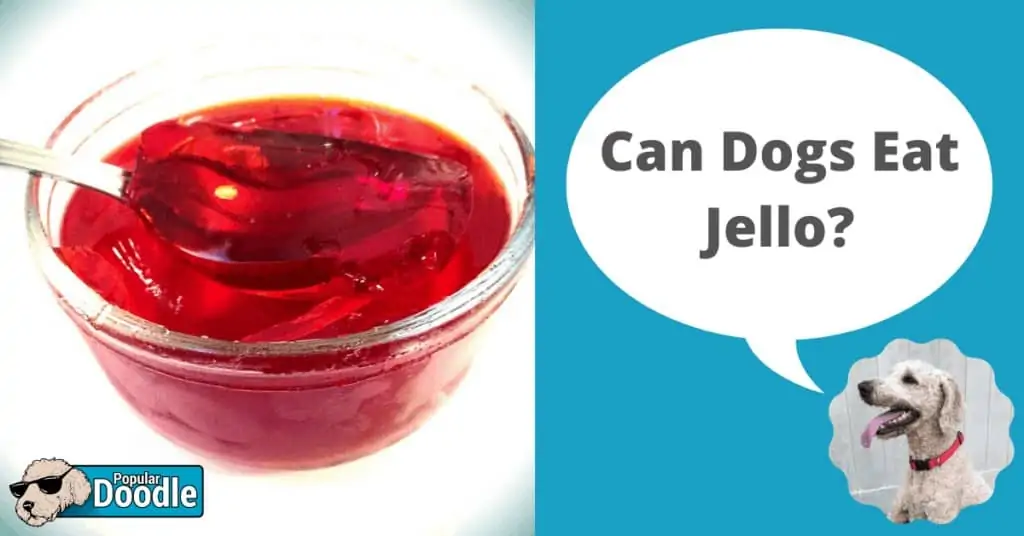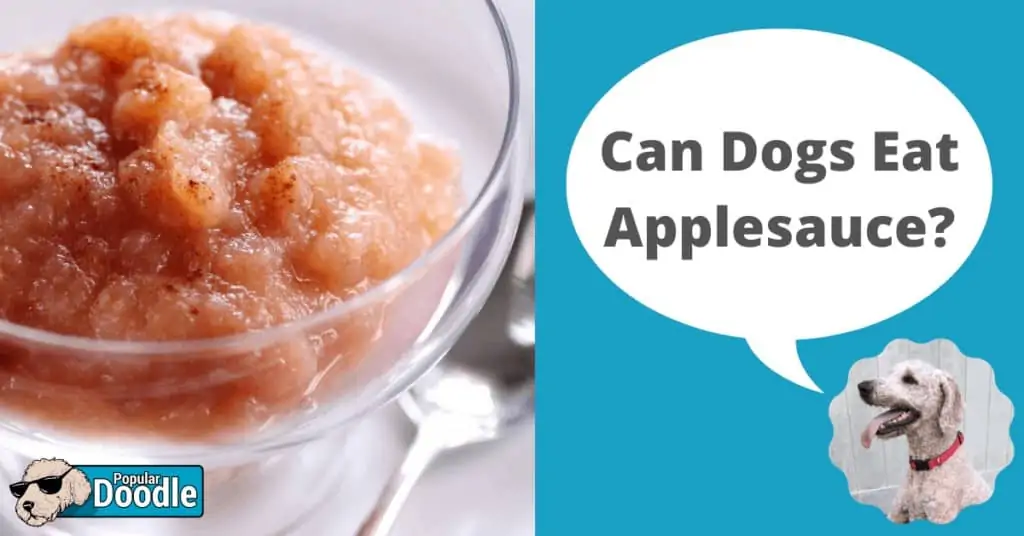
Three out of every four Americans can look in their pantry and expect to find at least one box of Jello! Americans love their jello so much, that we’ve dedicated an entire week to celebrating it! The week of February 12th to 18th is known as National Jello week! Your pup would be thrilled to participate in this celebration by enjoying a generous serving of jello. But can dogs eat jello? Or is jello bad for dogs? Read on to find out!
Can Dogs Eat Jello? (The Short Answer)
No, dogs should not have jello. Honestly, jello is a little bit of a tricky one. Gelatin, which jello is made out of, is the byproduct of cows and pigs and is made from boiling down bones and hides. Despite how unappetizing it may sound, gelatin is technically healthy for dogs. However, the additives, excess sugar, and artificial sweeteners in jello are not good for dogs. Store bought jello is significantly worse than homemade jello. Homemade jello is a far better option, but it should still only be given in moderation, as too much still isn’t healthy.
It’s important to remember, that even with the best of intentions, accidents happen and dogs can easily eat things they shouldn’t. Unfortunately, even if those accidents aren’t fatal, they can result in huge, unexpected veterinary expenses. That’s why we recommend all responsible dog owners get a free, online pet insurance quote from Healthy Paws.
Is Jello Good For Dogs?
We’ve already answered the question, “can dogs eat jello?” Now, let’s learn about the benefits of feeding your dog this food! Is jello good for dogs?
No, store-bought jello really isn’t good for dogs. Jello is considered a low-calorie food, but it also doesn’t contain many nutrients either. However, homemade jello can be made fairly healthily and can be a dog-safe option.
Gelatin, a main ingredient in jello, is fairly healthy for dogs and is a large part of the protein content in jello. Gelatin by itself is healthy, just not after you add in a ton of sugar and artificial flavorings. Gelatin is essentially collagen, a connective tissue found in the body. It’s been shown to improve bone health and minimize joint pain! There is also evidence to support that gelatin is good for brain health and helps slow the aging process of the brain. The amino acids found in gelatin can be beneficial for the skin and coat of your dog as well.
Homemade jello, however, can be a great option for your dog! Homemade jello generally consists of three simple ingredients such as fruit or vegetable juice, gelatin, and honey. To make it even healthier, the juice can be fresh-squeezed or pressed, elminating any additional sugars from being added. Homemade recipes nearly eliminate refined sugars, artificial flavors, and additives!
Is Jello Bad for Dogs?
We’ve already answered the question, “can dogs eat jello?” Now, let’s learn about the dangers of feeding your dog this food! Is jello bad for dogs?
Yes, generally speaking, jello is bad for dogs. Jello is a sweet food, and that sweetness isn’t natural which is what makes it so bad for dogs. From added sugars to artificial sweeteners such as xylitol—this food is rather unhealthy.
Take strawberry jello, for example. In a serving there is 80 calories, 1.6 grams of protein, and 18 grams of sugar! Sugar isn’t healthy for humans and the same can be said for dogs. Over time, sugary foods can result in obesity which can in turn lead to other problems including diabetes. In terms of calories, it isn’t the worst food ever. However, these 80 calories provide little to no real health benefits, making them essentially 80 empty calories.
In a lot of jellos, there isn’t just sugar, but artificial sweeteners as well. Xylitol is a commonly used artificial sweetener that is incredibly dangerous to dogs. Even very small amounts of xylitol can cause hypoglycemia, seizures, liver failure, and death. Other artificial sweeteners aren’t much better. They may not be toxic to dogs, but there’s a huge debate over whether or not they do more harm than good.
All of this being said, if the jello you make doesn’t contain xylitol, a very small amount should not be harmful to your dog. It’s just not a healthy option for an everyday treat due to the excessive amount of sugar. Giving your dog jello everyday could easily cause weight gain and weight gain can lead to a long list of other problems. Again, homemade varieties of jello are significantly healthier and you know all the ingredients that you add into it! This way, it prevents any unnecessary added sugars from being put into the recipe and offers a much fresher, healthier option.
Other Varieties & Related Foods:
Can Dogs Eat Sugar Free Jello?
No, dogs cannot have sugar-free jello either. You may be thinking that since sugar was the main issue with jello that a sugar-free option would be safe. Unfortunately, that couldn’t be more wrong. It may be labeled sugar-free, but it still has a sweet taste to it—how is that possible? Well, it’s possible by adding artificial sweeteners. Artificial sweeteners aren’t much better than real sugar for your dog. Artificial sweeteners could include xylitol or aspartame. Xylitol is toxic to dogs and should never be fed to them. Aspartame has been studied and has been shown to increase the chance of developing cancer. It is difficult to make a sugar-free homemade recipe because fruits naturally contain sugar, so any fruit you use to make into jello will contain sugar.
Can Dogs Eat Jello Shots?
Absolutely not, dogs should never have jello shots. Jello shots generally contain vodka or tequila which are some of the worst kinds of alcohol for a pet because they have a high alcohol content. Intentionally feeding a dog alcohol is not only dangerous but incredibly cruel. Dog’s kidneys and liver are not adapted to filter and process alcohol out of the blood stream. It takes dogs a lot less alcohol than humans to suffer serious effects. Alcohol ingestion can cause metabolic acidosis which manifests as symptoms including lethargy, poor coordination, drooling, vomiting, weakness, collapse, decreased respiratory rate, hypoglycemia, hypotension, and hypothermia.
In Conclusion: Can Dogs Eat Jello?
Overall, dogs should not have jello. While the main ingredient, gelatin, can be healthy for your dog, jello adds in a lot of sugar and artificial ingredients that aren’t healthy for your dog. If you choose to make a homemade jello out of gelatin, juice, and honey, it can be a safer and healthier option for dogs! Even if you do choose to make a healthier jello, it should only be given in moderation as most fruits contain ample amounts of sugar as well.
Want to Learn More?
Check out these related articles from our “Read Before You Feed” series for more advice on safe foods for dogs!
- Can Dogs Eat Ice Cream?
- Can Dogs Eat Cheetos?
- Can Dogs Have Pickles?
- Can Dogs Eat Cheez Its?
- Can Dogs Have Pepperoni?
Disclaimer: We are not veterinarians and this article should not be taken as medical or veterinary advice. If you have any questions about your pet’s health or dietary needs, please contact your local veterinarian.









